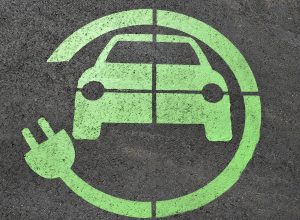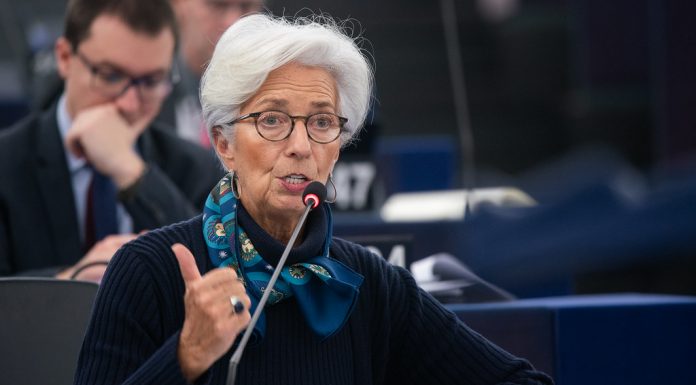
This week, the European Parliament voted to effectively ban the sale of new petrol and diesel cars in the European Union from 2035 on, as legislation requires car producers to achieve a 100% cut in CO2 emissions. 340 out of 640 MEPs voted to support a deal reached between Dutch Renew MEP Jan Huitema, EU member states, and the European Commission in October.
Banning a perfectly functioning technology – the combustion engine – due to hopes that alternative mobility solutions – electric vehicles – will become as efficient and accessible is really “peak EU”. In EU regulation, skepticism towards science or expertise is unfortunately often to be found.
At least, the EPP group opposed the plan, as German CDU MEP Peter Liese stating that “The ban on the combustion engine does very little for the climate and harms industry in our region,” echoing the concerns also voiced by the car manufacturing industry.
On twitter, the EPP warned that “the ban on sales of new cars with combustion engines starting in 2035 will lead to the “Havana effect”. This means that, after 2035, our streets might become full of vintage cars because new cars without combustion engines are not easily available or affordable.”
The ban on sales of new cars with combustion engines starting in 2035 will lead to the "Havana effect".
This means that, after 2035, our streets might become full of vintage cars because new cars without combustion engines are not easily available or affordable.#FitFor55 pic.twitter.com/9f9zoTRtBa
— EPP Group (@EPPGroup) February 14, 2023
Ironically is also that on the same day, the European Parliament supported the EU’s “RePowerEU” plan, a scheme to promote energy independence, whereby nuclear power however was not included. This is yet more evidence of the iron grip of the “green” movement on EU policy making, which also reveals the “degrowth” agenda behind a lot of the EU’s green regulation. If reducing CO2 levels was the concern, there is no way around nuclear energy.

“Tech neutrality” out of the window
One concession made to the German government, on request of the liberal FDP party, is that the 2035 ban includes a non-binding clause that may allow vehicles with e-fuels in the combustion engine. EU “climate” Commissioner Frans Timmermans, possibly the most extreme proponent of Commission President Ursula von der Leyen’s green agenda, however already toned down hopes that this clause could somehow act as an escape valve, writing “review clauses are part of any European law” in an article praising electric vehicles as the one and only solution.
When a politician predicts a certain technology will prevail and that therefore, the functional alternative to it must be banned, alarm bells should ring, at least for those who care about “tech neutrality” in policy. At the moment, 10 percent of vehicles in Europe are electric, which is only 5 percent in the United States – even if Timmermans is attempting to portray the U.S. as incredibly enthusiastic about EVs. This may well increase a lot, but despite the tax advantages, even in the U.S., with its cheaper energy prices, owners of electric cars are now complaining that it has sometimes become more expensive to charge EVs than to fill the gas tank.
The arguments against EVs are well-known – from challenges to the grid, over expensive electricity in the context of nuclear energy phaseouts making cars a luxury good to risks related to human rights and the environment – and may well turn out to be disproven. The real point is that policy makers should not gamble on a certain technology, but should allow market forces – consumers – to sort out what’s the superior option.
Not surprising to see "greens" pushing for policies that ban an industry where Europe is strong, but strange they seem so blind to the environmental downsides of EVs or human rights. Do they prefer degrowth over green?https://t.co/UlUyUZdIU4 https://t.co/UjjGhUmUD9 @GreensEFA
— Pieter Cleppe (@pietercleppe) February 14, 2023
Also the fact that 56% of the EV battery market is in the hands of Chinese companies, followed by Korean companies (26%) and Japanese manufacturers (10%) should perhaps make Europe and the United States reflect over whether it is wise to impose this particular technology for car mobility from the top down. Debates on whether protectionism is a wrong approach to deal with legitimate questions of geostrategic overreliance are superfluous when this kind of overreliance is being artificially promoted.
Find out here how MEPs voted on outlawing a perfectly functional technology for mobility in the absence of an efficient affordable alternative.
Not a good look for the European Parliament:pic.twitter.com/uqhHwXjDc7 #combustionengine
— Pieter Cleppe (@pietercleppe) February 14, 2023
Also trade policy is affected by “green” activism
Also in the area of trade policy, the EU’s crave to impose electric vehicles is making its mark. In response to the U.S. inflation reduction act, which includes lots of protectionist fiscal stimulus for the North-American production of EV batteries, the EU Commission is proposing to come up with protectionism of its own to support supposedly environmentally friendly industries at home. Thereby the EU is really fighting fire with fire, even willing to risk to water down the already poorly applied EU ban on state aid, which risks the single market, the cornerstone of EU cooperation.
Interestingly and thankfully, von der Leyen & co are only receiving strong backing from France and Germany for this sinister plan, as even the traditionally more protectionist Southern European member states oppose this, as they fear the subsidy firepower of the EU’s two biggest economies would lead to considerable distortions of fair competition. To see 25 versus 2 really is quite remarkable and indicative of the fact that all is to play for, even if the Commission received formal endorsement at last week’s Summit. It remains to be seen where it all will go, and will be an important topic of discussion at the March EU Summit.
Diplomats tell Politico that France and Germany are "relatively isolated" at today's #EUCO summit, as they support the EU’s green subsidies plan, with its proposed relaxation of state aid rules, whereas the other 25 member states oppose this threat to the core of EU cooperation: https://t.co/IanNNQIRfp pic.twitter.com/AK8qKKOyOl
— Pieter Cleppe (@pietercleppe) February 9, 2023
Last year, Germany and France were the main drivers behind undermining the EU's single market and fair competition: https://t.co/VKibr2buNS
— Pieter Cleppe (@pietercleppe) January 18, 2023
Trade tensions with South East Asia
Meanwhile, away from the limelight, apart from the trade tensions with the United States, also trade tensions with South East Asia, a true growth powerhouse, have been building up, once again over EU policies that are supposed to protect the environment but really come down to yet another round of EU protectionism.
In particular the EU’s new deforestation regulation, which impose new, stricter requirements aimed at protecting forests, has angered South East Asian economies like Malaysia or Indonesia. At the EU-ASEAN Summit in December, Indonesian President Jokowi criticised the EU, warning that the EU should not attempt to dictate its standards to trade bloc ASEAN if it wants to maintain its relationship with Indonesia going forward, saying: “There must be no coercion, no more parties who always dictate and assume that my standards are better than yours.”
Quite a stark message (and stark emojis!) from Jokowi to EU leaders at the EU-ASEAN summit https://t.co/IY04Aw0FDZ
— Ben Bland (@benjaminbland) December 15, 2022
In January, the tensions ratched up even more, with Malaysia warning it could stop exporting palm oil to the European Union in response to the new EU deforestation rules. A particular frustration in Indonesia and Malaysia is that their efforts to come up with sustainability certification standards that are mandatory for all plantations are not being appreciated, especially as these efforts have also delivered results. Think tanks like Chain Reaction Research (CRR) have stated that palm oil deforestation in Indonesia, Malaysia and Papua New Guinea has fallen to its lowest level since 2017. It is also telling that Sime Darby, a Malaysian company which is the world’s largest producer of certified sustainable palm oil, announced to reforest a 400-hectare area of peat plantations in Sabah and Sarawak as part of its commitment to net-zero by 2050, so to achieve a more sustainable future. Recently, the company received a clean bill of health from US Customs, as it was allowed to resume imports of palm oil into the US after a two-year ban.
Fundamentally, removing palm oil altogether out of the supply chain would worsen deforestation, according to researchers of the University of Bath, as alternatives produced in Europe, like sunflower or rapeseed oil, require more land, water and fertilisers.
EU attempts to intensify trade with the region are troubled by the issue. By the end of 2023, the EU for example intends to conclude the Indonesia-EU Comprehensive Trade Agreement (IEU-CEPA) but EU ambassador Vincent Piket has to admit that “We have lots of explaining to do, to the media and officials, [so they are] convinced that the deforestation law can be made to work”.
The UK approach not to attempt to export one’s regulations to other jurisdictions, whereby products merely need to be in line with local regulations, is clearly much more prudential. In the age of decoupling, as EU trade with China may well reduce or not increase as much, it is unfortunate to see the EU’s regulatory zeal undermining the opportunities to increase trade with South East Asia, a very attractive alternative and widely considered to be a massive future growth market.
Conclusion
With friends like these, the EU needs no enemies. The EU’s decision to ban the combustion engine is yet more evidence of the misguided path the EU is pursuing: abandoning tech neutrality, evidence-based regulation and even free trade, both among EU member states and with the rest of the world. The European Parliament and European Commission are nearing the end of their term. It frankly cannot come soon enough.












